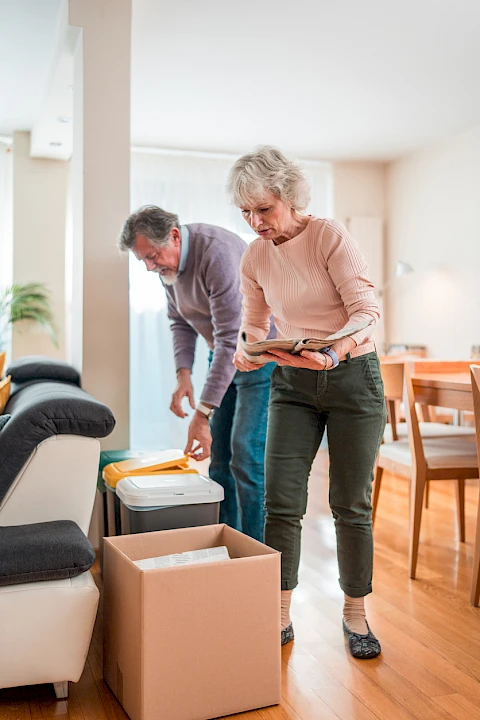
Hoarding is a complex behavior that can have serious consequences. It often leads to unsafe living conditions, and it negatively impacts mental well-being. Recognizing the signs of hoarding behaviors early is critical to making positive changes. That's why our goal today is to help caregivers identify and address hoarding in their senior loved ones, making their living environment safer and more comfortable.
Seniors and Hoarding
Seniors may develop hoarding behaviors for various reasons. Some may stem from past experiences, such as growing up during a time of scarcity. Others may be linked to mental health issues like depression or anxiety. It's important to differentiate between collecting and hoarding. While collectors showcase their items in an organized manner, hoarders accumulate things chaotically, making it hard to function normally in their living spaces.
The Physical Indicators of Hoarding
Caregivers should be aware of the physical signs of hoarding. These indicators include:
- Excessive clutter in living spaces
- Difficulty moving through the home due to clutter
- Accumulation of items with little or no value, such as old newspapers, broken appliances, or expired food
These signs often make everyday tasks challenging and can pose risks to health and safety.
The Emotional and Behavioral Signs
Hoarding also manifests in emotional and behavioral ways. Seniors who hoard may experience anxiety or distress at the thought of discarding items. They often have a strong emotional attachment to possessions, regardless of their worth. Social withdrawal and isolation are common, frequently due to embarrassment about their living conditions. These emotional and behavioral signs highlight the psychological aspects of hoarding that need to be addressed sensitively.
The Environmental Red Flags
Warning signs include unsanitary living conditions, such as mold or pest infestations. Safety hazards like blocked exits or overloaded electrical outlets pose fire risks. Neglect of home maintenance leading to structural issues or disrepair is also common. These conditions affect the senior's quality of life and their overall safety.
Approach the Topic with Sensitivity
Addressing hoarding with a loved one can be a challenge, but it's essential to approach the topic with sensitivity and respect. Initiate the conversation gently, focusing on your concern for their well-being. Use empathetic and understanding language, such as "I've noticed it's getting harder to move around in here; how can I help?" Avoid judgmental language and actions, as criticizing can lead to defensive responses. The goal is to open a dialogue that encourages cooperation rather than causing stress or resistance.
Seek Specialized Support as Necessary
In many cases, outside help is necessary to tackle hoarding effectively. Consider seeking professional support when the hoarding behavior poses significant health or safety risks, the emotional distress related to hoarding is severe, or efforts to declutter have been unsuccessful. Types of professionals who can assist include therapists who specialize in hoarding, professional organizers, and social workers.
We're Here to Help Your Senior Live a Healthy Lifestyle
If you suspect your senior loved one is exhibiting hoarding behaviors, don't hesitate to seek professional help. And if you need a hand looking after your senior loved one, contact us at Senior Helpers Melbourne. Our team can assist elderly residents of Palm Bay, Grant, Malabar, Melbourne Beach, and Sebastian with personal care, meal preparation, medication management, and light housework. Together, we can create safer and healthier living environments for our loved ones.